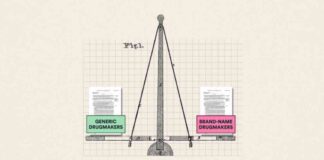Cervical cancer is a common type of cancer that affects women. It is important for women to understand the importance of cervical cancer screening and prevention. Here is a guide to help you learn more about cervical cancer screening and prevention:
What is cervical cancer?
Cervical cancer is a type of cancer that begins in the cervix, which is the lower part of the uterus that connects to the vagina. It is usually caused by the human papillomavirus (HPV), a sexually transmitted infection. Cervical cancer can be life-threatening if not detected and treated early.
How common is cervical cancer?
Cervical cancer used to be one of the leading causes of cancer death for American women, but the Pap test has helped reduce the number of cases. However, it is still important for women to continue getting screened for cervical cancer regularly.
What are the risk factors for cervical cancer?
Some factors that may increase the risk of developing cervical cancer include:
– HPV infection
– Smoking
– Weakened immune system
– Chlamydia infection
– Long-term use of birth control pills
– Having multiple sexual partners
– Giving birth to many children
– Having a mother who took diethylstilbestrol (DES) during pregnancy
How can cervical cancer be prevented?
Cervical cancer can be prevented by getting the HPV vaccine, practicing safe sex, not smoking, and getting regular Pap tests. The HPV vaccine is recommended for girls and boys starting at age 11 or 12. It is important to talk to your healthcare provider about the best ways to prevent cervical cancer based on your individual risk factors.
What is cervical cancer screening?
Cervical cancer screening involves testing for precancerous or cancerous cells in the cervix. The most common screening test is the Pap test, which collects cells from the cervix to be examined under a microscope. Another screening test is the HPV test, which looks for the presence of the HPV virus in the cervix.
When should I get screened for cervical cancer?
It is recommended that women start getting Pap tests at age 21 and continue getting them every 3 years until age 29. Women aged 30 to 65 can choose to continue getting Pap tests every 3 years or get a combination of Pap test and HPV test every 5 years. Women over the age of 65 may not need to be screened if they have had regular screenings in the past and no abnormal results.
In conclusion, cervical cancer screening and prevention are important for women’s health. By understanding the risk factors, getting vaccinated, practicing safe sex, and getting regular screenings, women can reduce their risk of developing cervical cancer. It is important to talk to your healthcare provider about the best screening and prevention strategies for you. Stay informed and take proactive steps to protect your health.


















